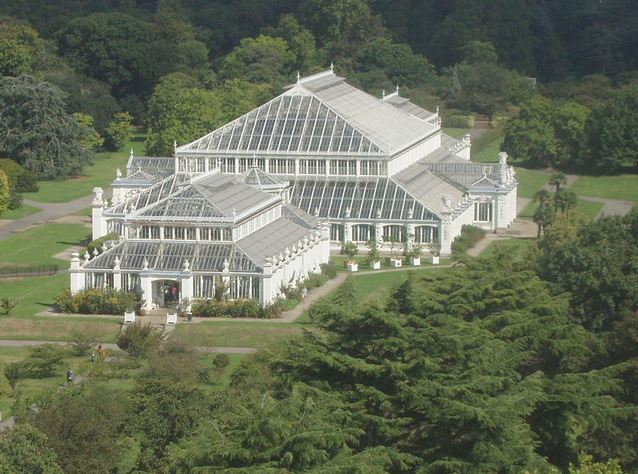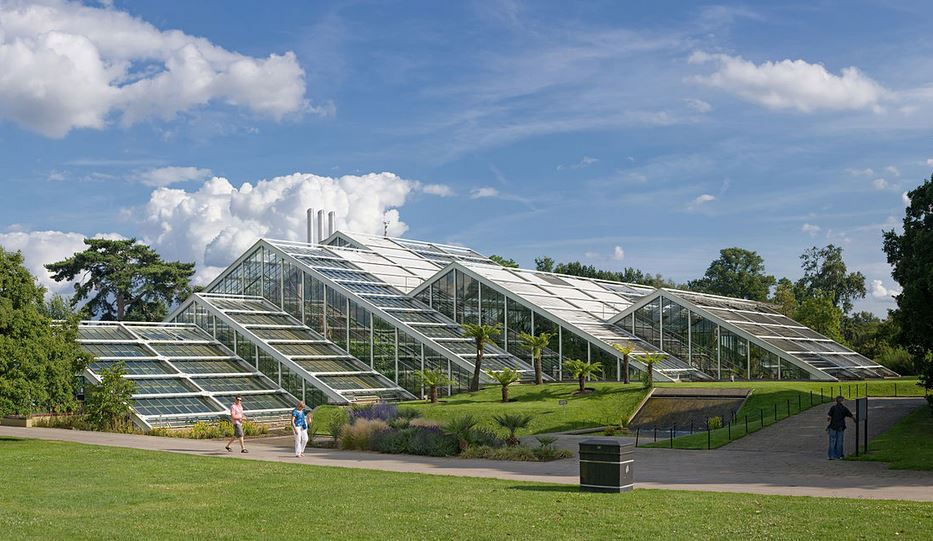The Government should treat Kew Gardens, the world’s major botanical research and education institution, like it does the Natural History Museum, and stop playing around with its funding all the time and micro-managing its expenditure, says a new Report from the Science and Technology Committee.
Last year, the Royal Botanic Gardens at Kew were so strapped for cash after government cuts that it had to lay off 100 employees, including forty-seven scientists.
Kew Gardens, founded in 1840, has the largest collection of living plants in the world. Its living collections include over 30,000 different kinds of plants, while the herbarium (collection of dried plants) has more than 7 million preserved plant specimens.
Kew achieved UNESCO World Heritage Site status in 2003.

Kew Gardens Temperate House designed by Decimus Burton. When it was built in 1859 it was the largest glasshouse in the world, and is still the largest Victorian one. (Image: Wikipedia)
The Government’s current and recent financial management of Kew Gardens is “a recipe for failure,”, the MPs wrote.
Andrew Miller MP, Chairman of the Committee, said that under the current Government funding system the institution is unable to plan for the future. There is a serious risk it will lose ground internationally and fail to compete effectively in global plant science, he warned.
Mr. Miller, Labour MP for Ellesmere Port and Neston, said:
“Recent financial problems have led to over a hundred people losing their jobs, 47 of which were scientists, and fears being raised over the ability of Kew to sustain its world class botanical and mycological science.”
“While the management is criticised for failing to produce a strategy (eventually published on 23 February) ahead of making changes and introducing redundancies the Committee has confidence in the management to carry out its plan to ensure the future of both Kew and its scientific mission.”
“Indeed, the report blames the pace of change on the difficult situation created by the restricted and stop/start nature of funding from the Government.”

The Princess of Wales Conservatory at Kew Gardens. (Image: Wikipedia)
Kew has no freedom while Natural History Museum does
The Government micro-manages Kew’s finances to the point of paralyzing its management, the Committee informed. It does not give it the same financial freedom enjoyed by other scientific institutions.
The Natural History Museum, for example, which is flourishing and prosperous, has far fewer budget restrictions imposed by the Government. The MP’s urged the Government to make sure there was greater parity in treatment between these great institutions.
While 96% of the Natural History Museum’s budget is unrestricted, i.e. it can choose how to spend its budget, most of Kew Gardens’ spending has to go through Defra (Department for Environment Food & Rural Affairs).
Nearly all the financial decision-making is done by Defra, something which Kew’s management is perfectly capable of.
The Committee added:
“The forthcoming Triennial review of Kew provides an opportunity to consider whether there should be more consistency of treatment between Natural History Museum and Kew according to the MPs.”
Entrance fee concern
The general public used to be able to get into Kew Gardens free of charge. In the 1970s a 1 penny charge was imposed. This increased to 15p in 1983, and has skyrocketed to £15 pounds today. The Natural History Museum, which gets loads of money and freedom, charges nothing.
The MPs wrote:
“The proceeds of charging for entry help fund the maintenance of the Gardens as a public amenity as well as supporting the scientific programme. Charges, however, put off sections of society who might choose, instead, to attend the Natural History Museum which has no such entry fee.”
They added:
“Kew cannot and should not compete for short-term grant money with a view to producing high impact academic publications. Instead it should provide taxonomic services of the highest international quality to catalogue the world’s plant diversity and support other areas of biodiversity and ecological research.”
Members of the Science and Technology Committee involved in writing the report were:
Chair: Andrew Miller (Labour, Ellesmere Port and Neston), Graham Stringer (Labour, Blackley and Broughton), Stephen Metcalfe (Conservative, South Basildon and East Thurrock), Pamela Nash (Labour, Airdrie and Shotts), Dan Byles (Conservative, North Warwickshire), Stephen Mosley (Conservative, City of Chester), Jim Dowd (Labour, Lewisham West and Penge), Mr David Heath (Liberal Democrat, Somerton and Frome), David Tredinnick (Conservative, Bosworth), and Sarah Newton (Conservative, Truro and Falmouth).
Video – Top ten attractions at Kew Gardens
